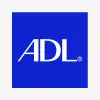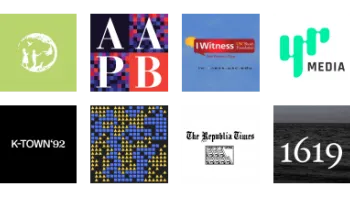Take a look inside 5 images
Anti-Defamation League
Pros: You can use this in class tomorrow. Legwork is done and it's ready to run.
Cons: Some resources take potentially divisive stands on political issues like BDS.
Bottom Line: This site fuses meaningful curricular connections between challenging current events and class content, and is a helpful go-to for teaching tough issues.
Teachers can turn to ADL to both get training on, and resources for teaching about, sensitive issues around bias, prejudice, and diversity, such as anti-Muslim bigotry, athletes and activism, or ableism. The site's search tool will bring up diversity-related resources on many trending topics. A quick search on "sports" yields an impressive library of sports-related diversity issues. Even something more current (as of this review) like "#metoo" already returns several resources. If lessons are flexible, ask students a few days in advance for topics they are hearing about in the news. Do a quick search, and plug in the resource or lesson according to class time available.
The Lesson Plans section includes ready-to-teach lessons that include openers, vocabulary, background information, reading activities and writing prompts, closing activities, and additional resources like video clips or further research, all of which can be used independently or as part of a lesson or unit. Sociology, Ethnic Studies, and Psychology classes might be able to dig deepest into the site's bottomless bag of anti-bias resources. An education glossary provides clear definitions and helps establish common meanings before exploring topics. Tips for discussions may not provide anything earth-shattering or unique, but if teachers are thinking about tiptoeing or diving into deep discussion, it's a must that these or other ground rules are reviewed first.
The Research and Tools tab is recommended for high schoolers only. Government classes studying the judicial branch can refer to the Amicus Brief Database, and even use the ones provided as models for writing their own amicus curiae briefs for mock court cases. The ADL en Espanol tab offers many of the resources in Spanish, with the same options to filter by topic, which is useful when recommending resources for families or conducting community-based trainings. Spanish is the only translation available, however, so the bilingual communities benefiting from this page are limited. The Hate Symbols Database, while certainly provocative, is a gamble and akin to a dictionary of hate codes. Entries are often accompanied by photos of tattoos or people throwing up gang signs, so it can be sobering or troubling depending on your students.
The Anti-Defamation League (ADL) is the website for the nonprofit of the same name. Its mission is to end discrimination and fight for equity for all people. As part of this mission, ADL offers resources for teachers to address wide-ranging issues that touch on the topics of diversity and bias like bigotry, net neutrality, DACA and immigration, and talking about race in a mostly white classroom. Resources (all free) fall under the Education tab and include K-12 classroom lesson plans, family conversation guides, and anti-bias training and toolkits. There's something for all grades, and resources are designed for easy, next-day implementation. While many of the resources can be challenging depending on your students' maturity level, teachers can filter by grade level and topic to find something just right.
Since there's a lot on offer, it can be easy to skim and skip without finding the real gems, so take the time to do some in-depth browsing. Moreover, because each page provides links to even more resources, be aware that some of the older page links are outdated or broken. Since it's a teacher-facing site, there's not much interactivity; however, the resources can lead to high engagement in the classroom via lively discussions. For teachers nervous about facilitating these challenging topics, dig into the teaching tips and handouts in the Tools and Strategies section. For students that want to turn discussion into action, check out the Take Action section, which offers civic engagement opportunities like writing Congress, petitioning, or filing hate report incidents.
The lesson plans under the Education tab are the site's strongest teacher feature, and can be filtered by grade level or topic. Lesson plans are carefully crafted with supplemental resources teachers will actually use, like graphic organizers that are ready to download and print. The website doesn't just address race, but many other -isms, plus history-focused topics such as the Holocaust or Harriet Tubman, and political buzzwords that students hear in the news but may not fully understand, like "sanctuary cities" or "DACA." The lesson plans for younger grades don't water down curriculum with simplistic holiday hero coverage, but provide opportunities to explore currents trends and issues, just in different, age-appropriate ways.
While ADL's content is well-intentioned and, for the most part, impartial, there are a couple issues of bias teachers should be aware of. First, many of the articles, while full of good information, cite their own organization as the source for data, so be sure to review source bias with students. Second, ADL does take some stands on political issues that are contested among advocates for social justice and equity -- the most notable being their anti-Boycott, Divestment, and Sanctions (BDS) position. Teachers might use this as a learning opportunity to help students unpack the BDS movement and to present both ADL's anti-BDS position and the position of pro-BDS advocates.













